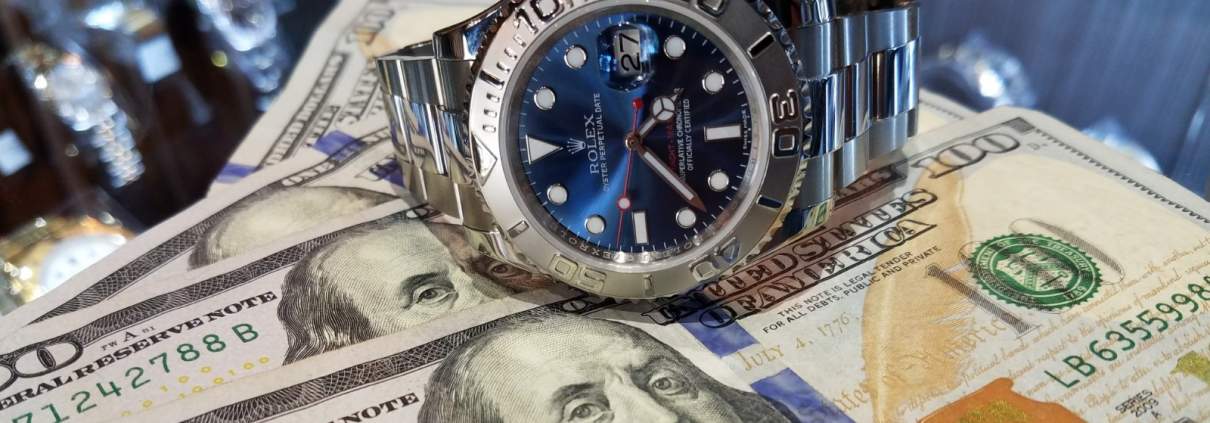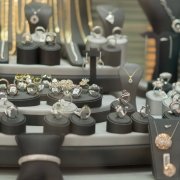Collateral Loans: Everything You Need To Know
Collateral Loans Are Simple
‘Collateral’ – the term refers to any property or asset that a customer promises to the lender as a sort of a backup in exchange for a loan. Usually, collateral loan agreements say that the lender can take over the asset if the borrower fails to repay the loan according to the contract. So If you are considering taking a loan secured by a collateral or a personal asset, it is important that you understand how collateral loans work.
Learning this, the lender can take the asset you put up for collateral, but only if you fail to pay off your debt or loan. Assets can be any item of a certain value. Alternative forms of repayment accepted by lenders are numerous . The most popular option is jewelry, in which case, also called a jewelry loan. This way, collateral assures that the lender receives full or partial payment or compensation. ‘Secured Loans’ are just collateral loans with a different name.
Examples of Collateral Loans
There are three main types of collateral loans.
Personal loans
Customers us personal loans consolidate their previous debt, finance their regular expenses, or build credit. Lenders offer these loans in two main types: secured and unsecured.
The difference between secured and unsecured personal loans is that secured personal loans are backed by collateral. In contrast, unsecured personal loans are not. Secured personal loans have lower rates of interest than unsecured personal loans because collateral reduces the lender’s possibility of default. Physical properties can all be used as loan collateral, such as vehicles, houses, or monetary assets.
Small Business Loans
Small business loans are a way to support a growing or small scale business. Office space rent, equipment, or hiring, are typical expenses for example. Collateral for such loans include real estate, inventory, and future payments by customers.
Small business owners can also use their personal assets to gain approval for a small business loan. As a result,
the lender can ask for a personal guarantee in some cases where the amount borrowed is high. That way seizure of the borrower’s personal assets (collateral) can happen if the company defaults on their loan.
Mortgages and Auto Loans
Mortgages and Auto Loans are among the most common types of secured loans customers use. In these cases, the asset being purchased (the house or car) is used as collateral for these loans, for instance. Most lenders insist that the asset be appraised to determine the exact value of the collateral. This process is extremely important for mortgage applicants as lenders approve home loans. Because they will do so only on the condition that the appraisal value of the house is in excess of or at least matches the sale price.
Advantages of Collateral Loans
You might be wary of taking a secured loan knowing that you could lose a valuable personal or business asset. But this type of loan is the best option for covering business expenses and keeping your debt in control. After all, when you know what you have to offer, you can benefit from collateral based lending.
Here are a few benefits of collateral loans:
- High range of options for the loan.
- Increased chance of qualifying
- Your finances, credit history, and debt management history is not taken into consideration
- Low rates of Interest
- Better terms of repayment
- Better leverage for negotiation
How the Wealthy are Using Collateral Loans
Business owners, CEOs, and the wealthy are turning in their Rolexes, jewelry, or other personal assets for collateral to high end pawn shops for quick and easy loans. As a result, these pawn shops and lending companies are noticing their affluent customers get loans of up to thousands and millions of dollars, because they are using high end collectibles serving as collateral.
The amount, in these cases, is far higher than the average loan size of $150, according to the National Pawnbrokers Association. Business owners are saying that the way luxury goods backed loans are growing does not point to financial distress related to pawn shops, instead it is to seize money making opportunities.
Real World Collateral Loan Examples
Jordan Tabach Bank, CEO of the Beverly Hills based company, The Loan Companies, says, ‘The pickup in economic growth has shifted the balance towards small business owners growing their businesses. Growth is certainly geared more towards opportunity loans than anything else.’ Jordan Tabach Bank’s company operates some high-end pawn shops, not only in Beverly Hills but also in Chicago and New York.
One of Bank’s clients was able to use his expensive watch collection to seal a commercial real estate deal. The customer had spent ten years trying to purchase a piece of property and then it suddenly came up for sale last year, and he had just one week to close the deal. Banks do not provide loans on such a short notice, but when the client showed four high-end luxury watches, Bank was able to provide him with $400,000 in just under 48 hours.
Collateral Loans Are A Tool, Not a Necessity
There is a common misconception that if people are borrowing money, they must be in a bad spot. That is not true. Most often, people whose businesses are steadily growing use collateral loans the most, for instance.
Global wealth is rising dramatically as equity markets have run into record high territory, so prices for luxury goods and important artifacts are rising. Last year, someone bought a Da Vinci painting for more than $450 million, becoming the most expensive art piece ever sold. In December,
a vintage Rolex owned by the Oscar winning actor Paul Newman, set the record for the most expensive watch ever sold at $17.75 million.

 Advolve Media
Advolve Media









